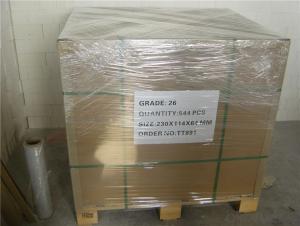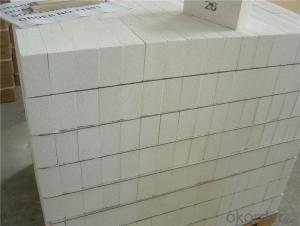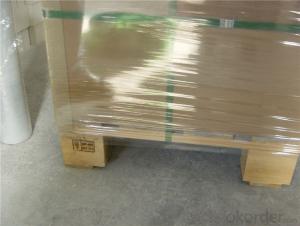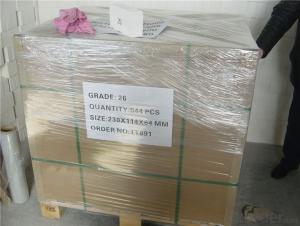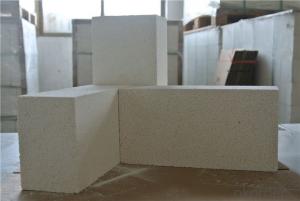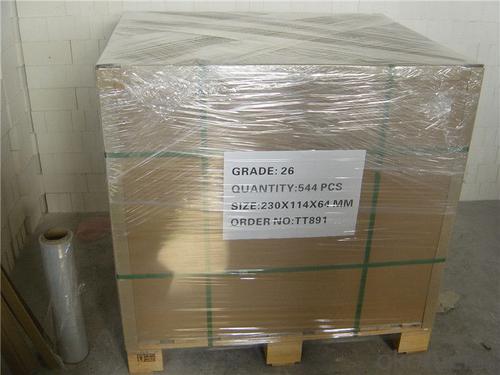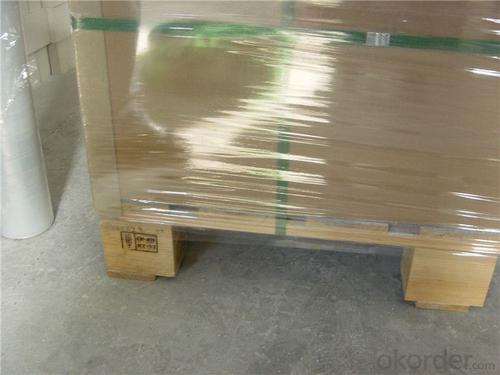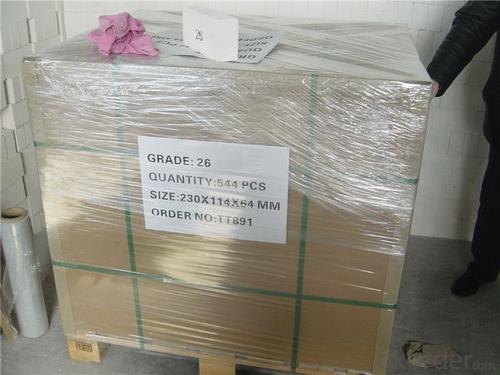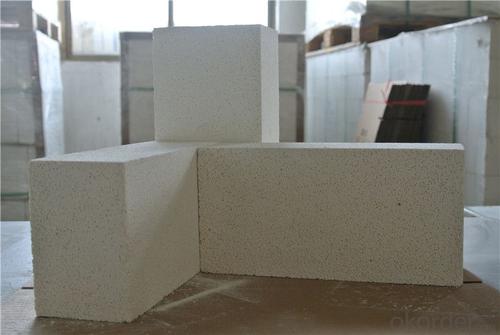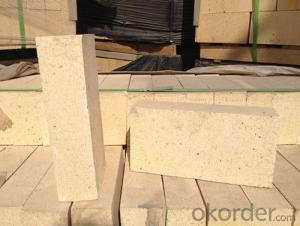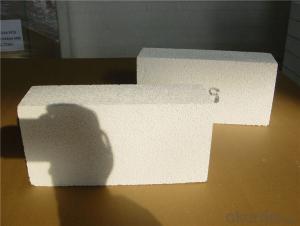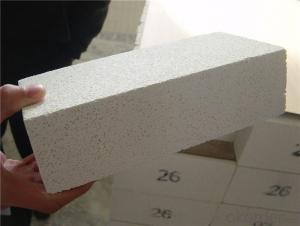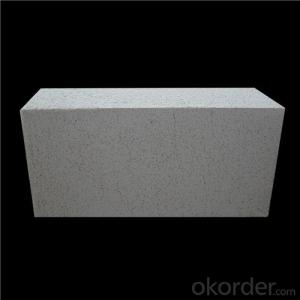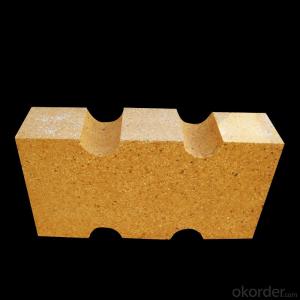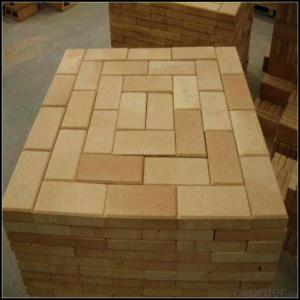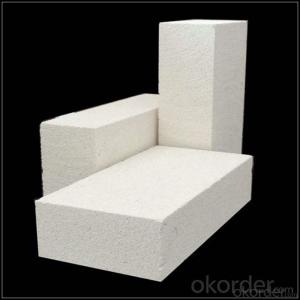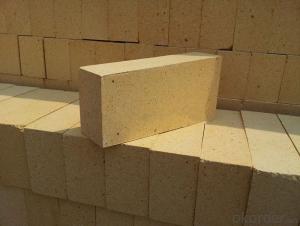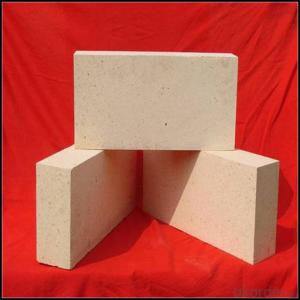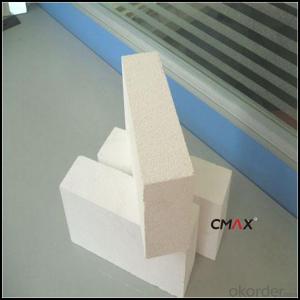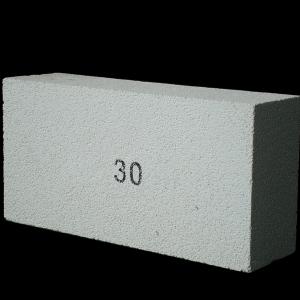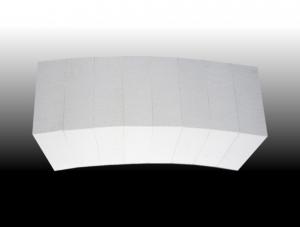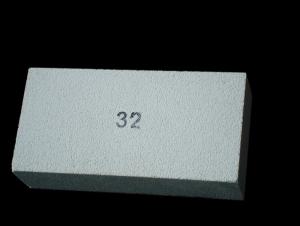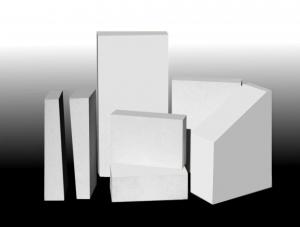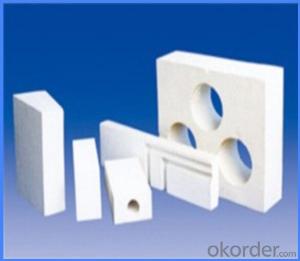Standard Size Refractory Fire Clay Insulation Brick For Tunnel Kiln
- Loading Port:
- Shanghai
- Payment Terms:
- TT OR LC
- Min Order Qty:
- 1 m.t.
- Supply Capability:
- 1000 m.t./month
OKorder Service Pledge
OKorder Financial Service
You Might Also Like
Thermal Insulation Fire Clay Brick
Refractory brick is a block of refractory ceramic material used in lining furnaces, kilns, fireboxes, and fireplaces.
We provide high quality Refractory Fire Bricks that are used on wide range in the various industries like Cement, Glass and Steel. Refractory Fire Bricks are provided as per the quantity and specifications required by the customers. We provide an extensive range of Refractory Fire Bricks at reasonable prices that depend upon the quantity ordered.
Application
Insulating Fire Brick are used for the lining of converter, alternating current arc furnace, direct Current arc furnace and the ladle slag line, etc.
Company Advantage
(1)Long Insulating Fire Brick manufacture history: 25 years manufacturer
(2)Advanced equipment
(3)Diversification of production standards: ISO ANSI FEPA JIS ASTM
(4)Flexible payment: T/T L/C D/P D/A
(5)Professional marketing team and after-sale service
Insulating Fire Brick main feature:
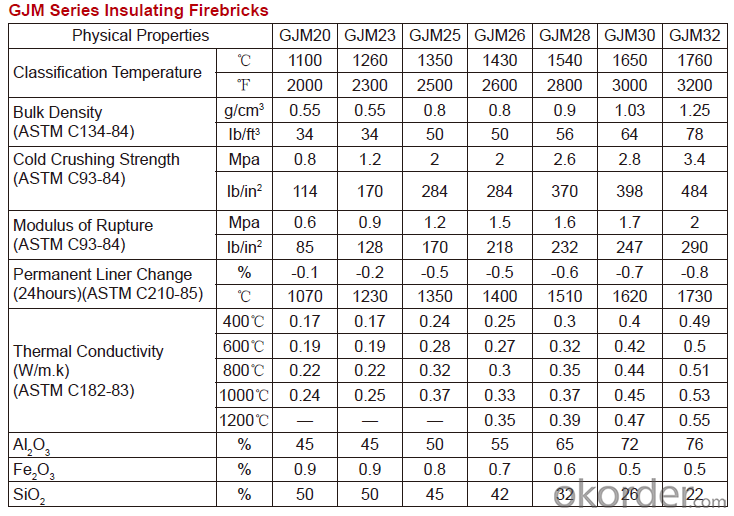
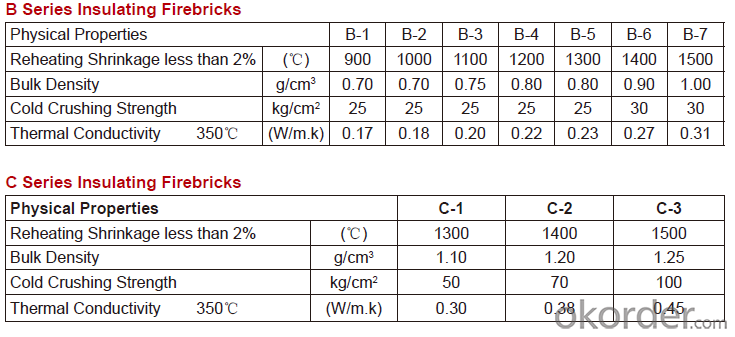
Equipment
1 unit of Ceramic Abrasive (SG Abrasive) pilot production line
2 units of Compact grain Abrasive pilot production lines
1 unit of high-end coated abrasives (abrasive cloth) production line
2 units of Boron Carbide production lines
3 large flexible crushing and sieving lines for grit production lines
6 units of 5000KVA-10000KVA dumping type electric arc furnaces for Brown Fused Alumina fusion
Q1 What’s the transport method?
A1 FCL delivery goods with wooden pallet or wooden case by sea; If LCL delivery, must with wooden case; Sometimes need open top, flat rack or bulk cargo.
Q2 What’s the required payment term?
A2 Generally 30% TT as the prepayment, 70% TT before delivery. If need, 100% Irrevocable Letter of Credit or negotiation.
Q3 Which country are our products exported to?
A3 Apart from entire Chinese market, the US, Russia, Japan, Korea, Australia and some Southeast Asian Nations.
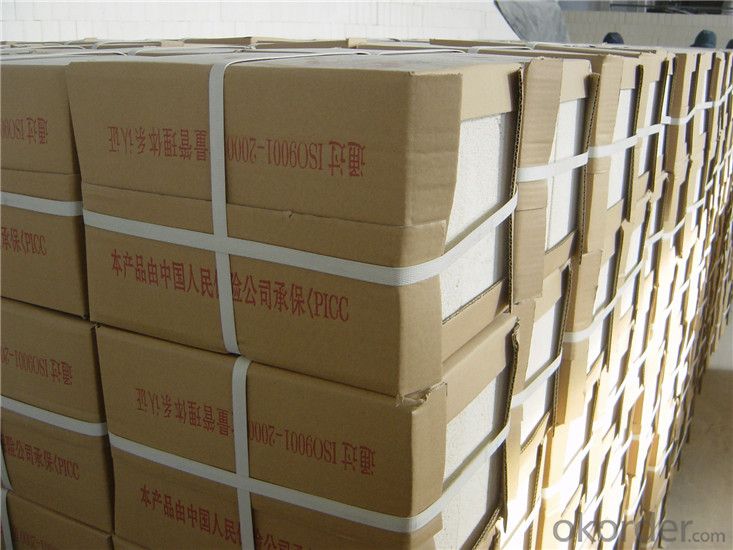
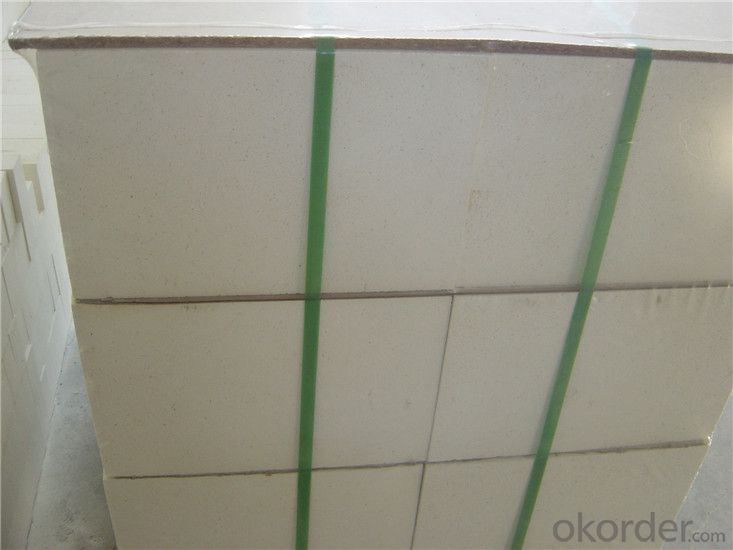
- Q: Are insulating fire bricks suitable for use in chimneys and fireplaces?
- Yes, insulating fire bricks are suitable for use in chimneys and fireplaces. Insulating fire bricks are designed to withstand high temperatures and provide excellent thermal insulation. They are made from lightweight materials such as ceramic fibers or lightweight aggregates, which help to retain heat and prevent heat loss. This makes them ideal for lining chimneys and fireplaces as they can effectively trap and radiate heat, resulting in improved energy efficiency. Additionally, insulating fire bricks have low thermal conductivity, meaning they can resist cracking and spalling caused by rapid temperature changes, ensuring their durability and longevity. Overall, insulating fire bricks are a reliable and effective choice for enhancing the performance and safety of chimneys and fireplaces.
- Q: Can insulating fire bricks be used in rocket stove designs?
- Insulating fire bricks are capable of being incorporated into the designs of rocket stoves. Rocket stoves are renowned for their efficient combustion and heat transmission, and the utilization of insulating fire bricks can enhance this level of performance. These bricks are produced from lightweight materials that possess excellent insulating properties, allowing them to effectively retain and reflect heat. The combustion chamber of a rocket stove is typically lined with insulating fire bricks in order to maximize the transfer of heat to the cooking surface or the area being heated. The bricks aid in the retention of heat within the combustion chamber, ensuring that a greater portion of the energy generated from the burning fuel is utilized to heat the cooking surface, rather than being dissipated into the surrounding environment. Moreover, insulating fire bricks are capable of enduring high temperatures, making them an ideal choice for inclusion in rocket stove designs. They are specifically engineered to withstand the intense heat generated by the combustion process, guaranteeing that the bricks will not fracture or shatter under such circumstances. In conclusion, the incorporation of insulating fire bricks into the designs of rocket stoves can enhance the efficiency and heat transmission of the stove, resulting in a more efficient and sustainable solution for cooking or heating purposes.
- Q: What is the typical density of an insulating fire brick?
- The typical density of an insulating fire brick is around 0.8 to 1.2 grams per cubic centimeter.
- Q: What is the typical cost of insulating fire bricks?
- The cost of insulating fire bricks can vary depending on various factors like size, quality, and quantity required. Generally, prices per brick can range from $2 to $10. Nevertheless, it is important to note that these figures are approximate and actual prices may differ based on the source of purchase and specific project requirements. To ensure the most favorable deal, it is advisable to compare prices from different suppliers.
- Q: Can insulating fire bricks withstand thermal shock?
- Insulating fire bricks are designed to have high thermal insulation properties and are typically used in applications where thermal shock is not a major concern. While insulating fire bricks can withstand moderate temperature changes, they are not specifically engineered to resist thermal shock. Thermal shock occurs when there is a rapid change in temperature, causing stress and potential damage to the material. Insulating fire bricks are more susceptible to thermal shock compared to dense fire bricks, which are specifically designed to withstand extreme temperature changes. If thermal shock is a concern in your application, it is recommended to consider other types of refractory materials that are specifically designed to withstand rapid temperature changes.
- Q: Do insulating fire bricks require any maintenance?
- Insulating fire bricks, also known as refractory bricks, are designed to withstand high temperatures and provide excellent insulation properties. One of the advantages of insulating fire bricks is that they require very little maintenance. These bricks are made from special materials that have high resistance to heat and thermal shock. As a result, they do not crack or break easily, reducing the need for frequent repairs or replacements. However, like any other material, insulating fire bricks can accumulate dust or debris over time. Regular cleaning is recommended to maintain their effectiveness and prolong their lifespan. This can be done by using a soft brush or vacuum cleaner to remove any loose particles. In addition, it is important to inspect the bricks periodically for any signs of damage, such as cracks or erosion. If any issues are identified, they should be addressed promptly to prevent further deterioration. Overall, while insulating fire bricks do not require extensive maintenance, regular cleaning and inspection are essential to ensure their optimal performance and longevity.
- Q: Are insulating fire bricks resistant to chemicals?
- Yes, insulating fire bricks are generally resistant to chemicals. They are designed to withstand high temperatures and have low thermal conductivity, making them an ideal choice for applications involving chemicals. These bricks are typically made from ceramic materials, such as alumina, which has excellent chemical resistance properties. However, it is important to note that the degree of chemical resistance can vary depending on the specific type of insulating fire brick and the chemicals involved. Some chemicals, especially highly corrosive or reactive ones, may still cause damage or degradation to the bricks over time. Therefore, it is advisable to consult the manufacturer or supplier for detailed information on the chemical resistance capabilities of specific insulating fire bricks.
- Q: Are insulating fire bricks resistant to electrical conductivity?
- Insulating fire bricks exhibit resistance to electrical conductivity. Their composition comprises materials with low electrical conductivity, like ceramic fibers or insulating refractory materials. The primary objective of these fire bricks is to offer thermal insulation, rendering them suitable for situations that demand the containment of high temperatures. Due to their minimal electrical conductivity, insulating fire bricks serve as linings in electrical furnaces, kilns, and other high-temperature apparatuses that necessitate electrical insulation.
- Q: Can insulating fire bricks be used for fireplace lining?
- Indeed, fireplace lining can be achieved using insulating fire bricks. These bricks are specially engineered to endure high temperatures and offer exceptional insulation. With their low thermal conductivity, they excel at retaining heat and preventing excessive heat loss from the fireplace. Consequently, they are an ideal choice for lining fireplaces as they augment the efficiency and efficacy of the heating system. Moreover, insulating fire bricks exhibit resistance to thermal shock and can withstand rapid temperature fluctuations, a crucial attribute in fireplaces where temperatures can vary significantly. All in all, incorporating insulating fire bricks for fireplace lining can enhance the performance and energy efficiency of the fireplace while ensuring its safety and durability.
- Q: Is it possible to cut insulating fire bricks to fit custom shapes?
- Yes, it is possible to cut insulating fire bricks to fit custom shapes. These bricks can be easily cut using a saw or other cutting tools to achieve the desired shape and size for specific applications.
Send your message to us
Standard Size Refractory Fire Clay Insulation Brick For Tunnel Kiln
- Loading Port:
- Shanghai
- Payment Terms:
- TT OR LC
- Min Order Qty:
- 1 m.t.
- Supply Capability:
- 1000 m.t./month
OKorder Service Pledge
OKorder Financial Service
Similar products
Hot products
Hot Searches
Related keywords
